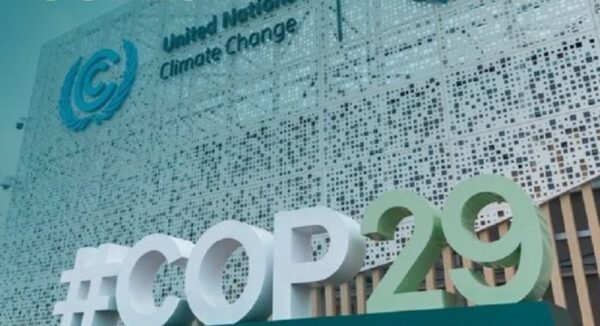Climate Finance COP29: Rich Nations Oppose but Developing World sticks to $1.3trillion/year demand
 At the ongoing COP29 climate conference in Baku, Azerbaijan, negotiations are intensifying as developing nations maintain their demand for $1.3 trillion annually in climate finance to address the impacts of climate change. This figure is significantly higher than what wealthy nations have indicated they are willing to contribute, with many developed countries proposing much lower amounts ranging from $200 billion to $900 billion.
At the ongoing COP29 climate conference in Baku, Azerbaijan, negotiations are intensifying as developing nations maintain their demand for $1.3 trillion annually in climate finance to address the impacts of climate change. This figure is significantly higher than what wealthy nations have indicated they are willing to contribute, with many developed countries proposing much lower amounts ranging from $200 billion to $900 billion.
Current Negotiation Landscape
Developing Nations’ Position
Developing countries argue that the requested $1.3 trillion is essential for both mitigating climate impacts and adapting to changes, including transitioning to clean energy systems.
They emphasize that this funding is not a charitable contribution but a legal obligation under the Paris Agreement, which mandates that developed nations provide financial support to developing countries for climate actions.
Key representatives from groups such as the G77+China and the Like-Minded Developing Countries (LMDC) have strongly rejected lower figures proposed in negotiations, asserting that amounts like $200 billion are insufficient and unacceptable.
Developed Nations’ Response
Wealthy nations have been hesitant to commit to specific figures, often suggesting that the contributor base should be expanded to include emerging economies like China and Saudi Arabia. This proposal has been met with strong opposition from developing countries, who view it as an attempt to shift responsibility away from wealthier nations.
Negotiators from developed countries argue that they need clarity on the overall structure of the financing before they can make commitments. They suggest that discussions should focus on how much of the funding will come from grants versus loans and what types of contributions can be counted towards the climate finance goal.
Key Issues Under Discussion
The negotiations at COP29 are centered around three critical aspects:
Magnitude of Financial Requirements: The stark contrast between the $1.3 trillion demand from developing nations and the lower figures proposed by developed nations highlights a significant divide.
Composition of Funding: There is ongoing debate about how much of the funding should be in the form of grants versus loans. Developing nations prefer grants, arguing that loans impose additional burdens on their economies.
Identities of Contributors: The question of who should contribute remains contentious, with developing countries insisting that only developed nations should bear this responsibility under existing international agreements.
As COP29 approaches its conclusion, negotiators face an urgent need to bridge these gaps. The outcome will significantly impact global efforts to combat climate change and support vulnerable nations in their adaptation and mitigation strategies. With just a short time left for negotiations, the pressure is mounting for all parties involved to reach a consensus that addresses both immediate financial needs and long-term commitments to climate justice.
COP29: Rich Nations Oppose but Developing World Sticks to $1.3 Trillion/Year Demand
At the ongoing COP29 climate talks, developing countries are steadfastly demanding an annual climate finance commitment of $1.3 trillion from developed nations to assist in climate action and adaptation efforts. This figure reflects the urgent need for financial support to address the severe impacts of climate change, particularly in poorer nations that are disproportionately affected by extreme weather events and other climate-related challenges.
Developing Nations’ Position
Developing countries, represented by groups such as BASIC (Brazil, South Africa, India, and China), have criticized rich nations for attempting to dilute their financial obligations. They argue that developed countries must honor their previous commitments rather than shifting responsibilities or proposing new criteria for contributions.The Like Minded Developing Countries (LMDC) have also voiced strong opposition to any proposals that would expand the contributor base to include high-income developing nations, emphasizing that such changes would violate the Paris Agreement’s provisions.
Current Negotiation Dynamics
As negotiations progress, a significant divide remains between rich and poor nations regarding the structure and amount of climate funding. Recent proposals have highlighted this gap, with developing countries insisting on substantial financial flows to effectively combat climate change. Meanwhile, developed nations are facing criticism for not fully delivering on their past commitments.
Calls for Action
India has been vocal in its demands for developed countries to step up their commitments, particularly in light of the increasing frequency of extreme weather events that threaten livelihoods in developing regions. Indian negotiators have pointed out the slow disbursement of existing adaptation funds and called for a more ambitious financial framework post-2025 that includes grants and concessional finance.
COP29 continues, the pressure mounts on developed nations to meet the financial needs of developing countries while adhering to the principles established in the Paris Agreement.
